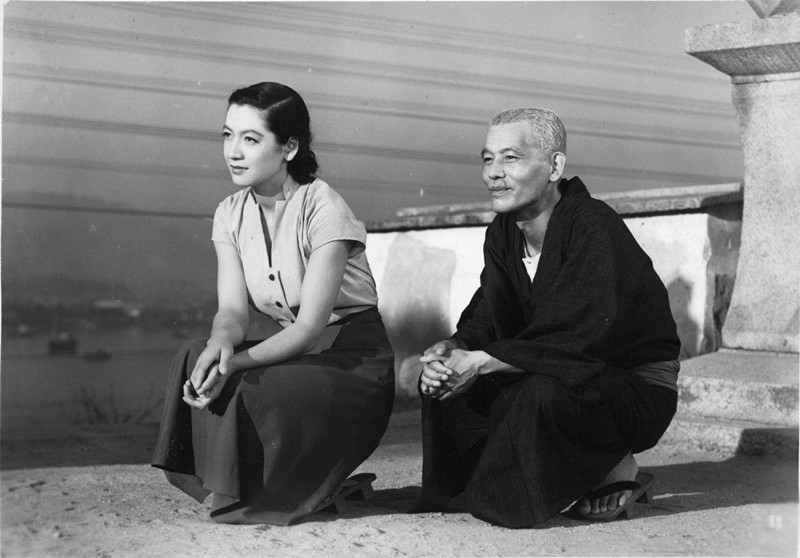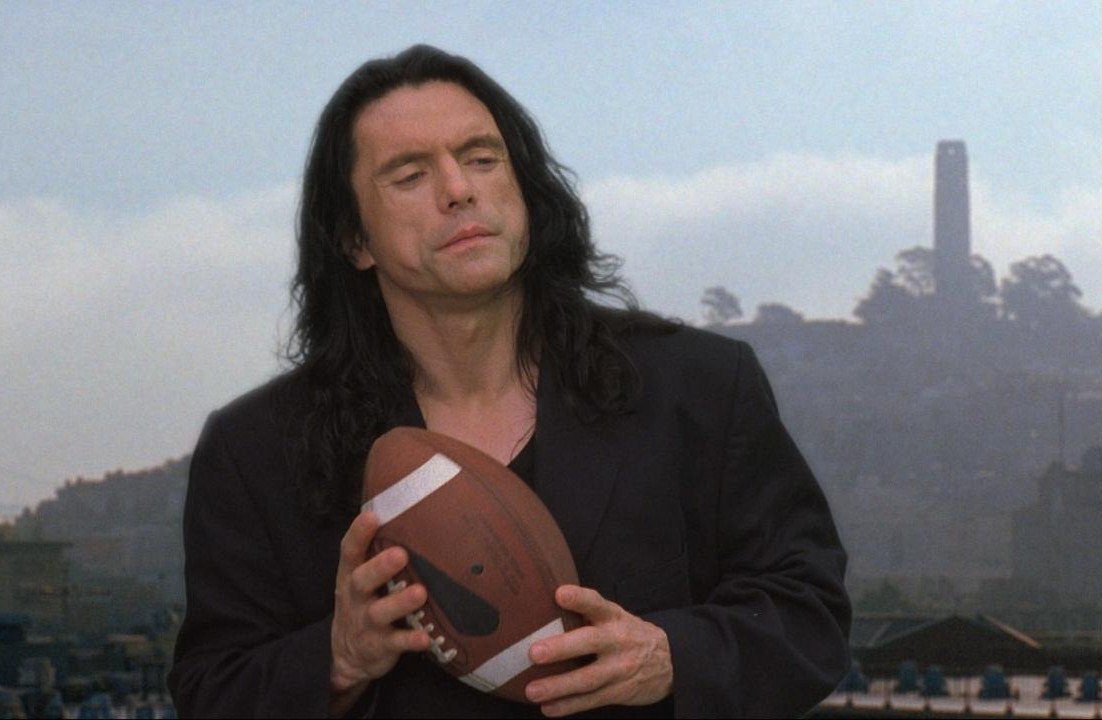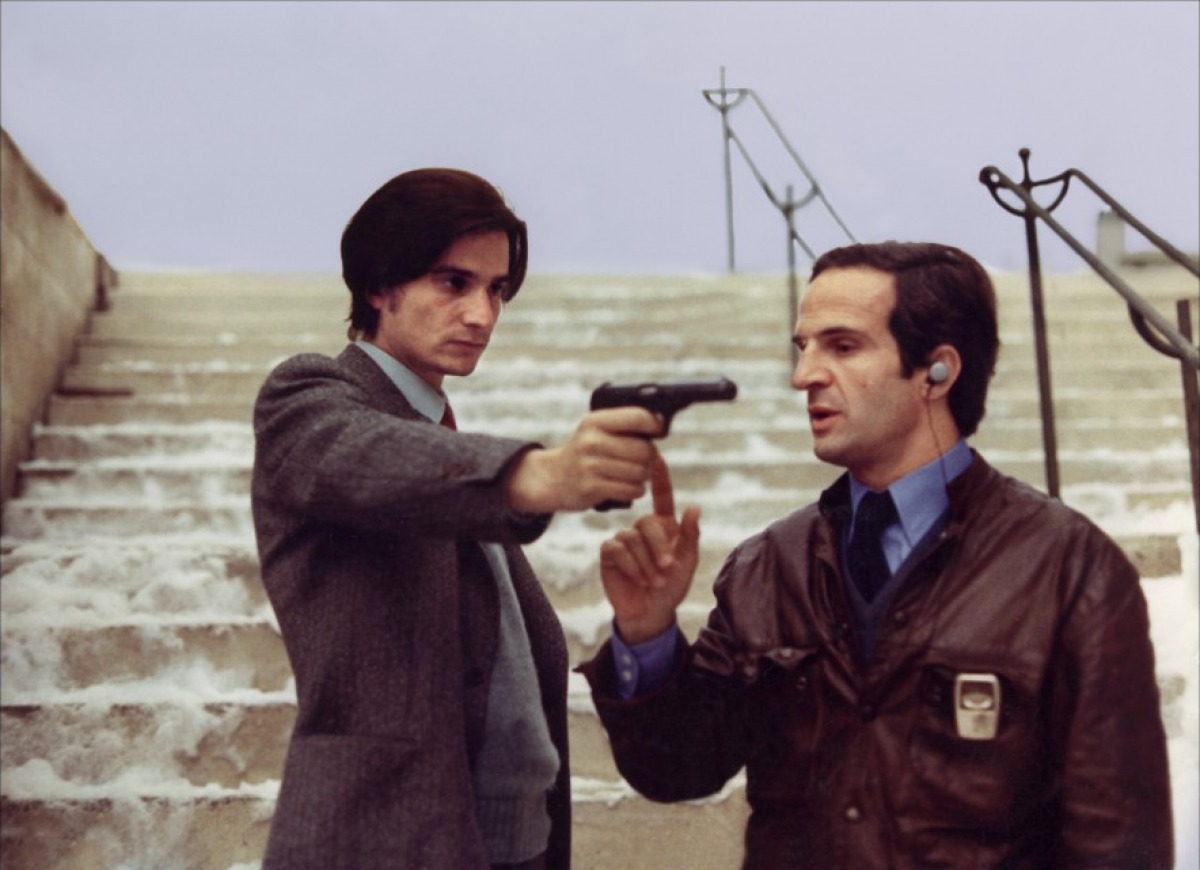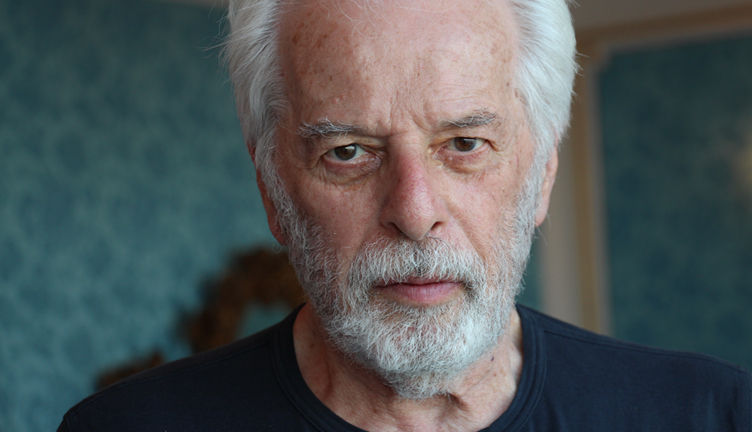6. Tokyo Story (1953, Yasujiro Ozu)

The biggest news of the 2012 Sight & Sound poll was, of course, that “Vertigo” outranked “Citizen Kane” as No. 1 the first time in five decades. Most people don’t know, however, that it’s just the critics’ poll. There’s another poll voted on by current directors, and the film topped that list was Japanese filmmaker Yasujiro Ozu’s 1953 masterpiece “Tokyo Story”.
Apparently these two polls are from two very different points of view, and if we are going to talk about films that every aspiring filmmaker should see, we need to look at the second poll.
Ozu loved watching Hollywood movies when he was young, but his filmmaking style is anything but Hollywood-like. He did not use over-the-shoulder shots in his dialogue scenes; he did not use transitions or non-diegetic music; he did not like melodrama and often avoided this by the use of ellipses.
His films are about everyday lives and human relationships; he did not pursue fancy techniques or dramatic stories, as his film style is inimitable but his themes are universal. His films are especially valuable today as more and more filmmakers are after bizarre stories or visual spectacles. Ozu’s films taught us that to make a good film you don’t need any of that, just some reflections of real lives.
7. The Story of Film: An Odyssey (2011, Mark Cousins)

To be a filmmaker, you don’t have to have encyclopedic knowledge of cinema history, but every great filmmaker “steals” something from other filmmakers before them.
And being a filmmaker, just like other professions, is a constant learning process. Every once in awhile, you need to draw inspirations from those film giants. Even though he’s considered as a cinema genius, Orson Welles reportedly saw John Ford’s “Stagecoach” before he made the legendary “Citizen Kane”.
The best and most systematic documentaries about the history of cinema is Mark Cousins’ 15-hour epic “The Story of Film: An Odyssey”. It chronicles film history in 15 episodes, from the birth of cinema to the latest blockbusters.
It offers a perfect learning opportunity to a whole new generation of movie buffs and aspiring filmmakers, as the director has great knowledge of world cinema and illuminating insights about the films he chooses to talk about. If you haven’t seen it, you’d better watch it sooner than later, because as an aspiring filmmaker, you might find your inspirations right here.
8. The Room (2003, Tommy Wiseau)

If you think this list will only consist of some of the greatest films ever made, then you are wrong. In order to make good films, you have to study bad films, and sometimes even the worst ones. There are so many unintentionally hilarious bad movies out there that they formed a genre of their own: “so bad it’s good” movies.
In this rich category, the choices are plenty, and we decided to pick Tommy Wiseau’s 2003 midnight classic “The Room”, called the “Citizen Kane of bad movies” by American film professor Ross Morin.
It can teach you everything you shouldn’t do in a movie, from script writing to directing to acting; you can learn a lot from it about how to avoid common mistakes beginners might make in a movie.
The movie could also give any first-time filmmaker a confidence boost, as you simply cannot make films worse than “The Room”. Even if your film is really that bad, it might be another cult classic, who knows?
9. Day for Night (1973, Francois Truffaut)

The French New Wave is one of the greatest film movements in cinema history, and the technical innovations from that movement are jaw-dropping. From a purely technical angle, we should probably choose a Jean-Luc Godard film, but we go for another central figure of the movement, Francois Truffaut, and choose one of his post-New Wave films, ”Day for Night” for several reasons.
First of all, it’s the ultimate film about filmmaking; it demonstrates what a filmmaker needs to do and think in a documentary style. There are also other similar movies showing the process of filmmaking, but none of them are this interesting and detailed.
Second, it’s honest and human, something of a legacy from Jean Renoir. The story was told mainly from the director’s standpoint, as well as from those of the cast and crew. It didn’t shy away from misbehavior and mistakes, as well as the obstacles and tragic events that are commonplace in filmmaking.
Third, it’s a love letter to cinema from one of its best practitioners. In a scene we see the director, played by Truffaut himself, pick up the phone for a sound test. His new books fall down in front of the camera, and we see the books of directors he admired so much: Luis Buñuel, Carl Theodor Dreyer, Ingmar Bergman, Alfred Hitchcock, Jean-Luc Godard, Ernst Lubitsch, Roberto Rossellini, and Robert Bresson.
This is not only a reminder that a filmmaker needs to learn from his predecessors and peers, but it also becomes a touching point when you add this part to your films.
10. Jodorowsky’s Dune (2013, Frank Herbert)

When Alejandro Jodorowsky, one of the greatest cult filmmakers of all time, announced he was going to make a film based on the seminal sci-fi novel “Dune” by Frank Herbert, everyone was excited about the news.
What’s more exciting is the dream team Jodorowsky approached: Pink Floyd for the music; H. R. Giger for set and character design; Dan O’Bannon for special effects; and Salvador Dalí, Orson Welles, Gloria Swanson, David Carradine, and Mick Jagger for the cast.
Sadly, the project ultimately stalled for financial reasons and another surrealist director, David Lynch, got the right to make the film. Whether his version is good or not completely depends on your judgement, but even as an unfinished film, Jodorowsky’s “Dune” still influenced great sci-fi films like Star Wars, Alien, and various others.
Director Frank Pavich made this documentary based on the unrealized project so more people would have the chance to know everything behind one of the greatest films never made. It was probably one of the most inspiring documentaries for any aspiring filmmakers to watch. I will quote Jodorowsky to end this entry and the whole article, so keep them in mind.
“Why will you not have ambition? Why? Have the greatest ambition possible. You want to be immortal? Fight to be immortal. Do it. You want to make the most fantastic art of movie? Try. If you fail, it’s not important. We need to try.”